A vendor agreement, also known as a vendor contract or supplier agreement, establishes the conditions and expectations for a business relationship between a seller and a buyer.
It is a legally binding document that outlines the terms and conditions of the agreement, including the responsibilities, obligations, and rights of both parties involved.
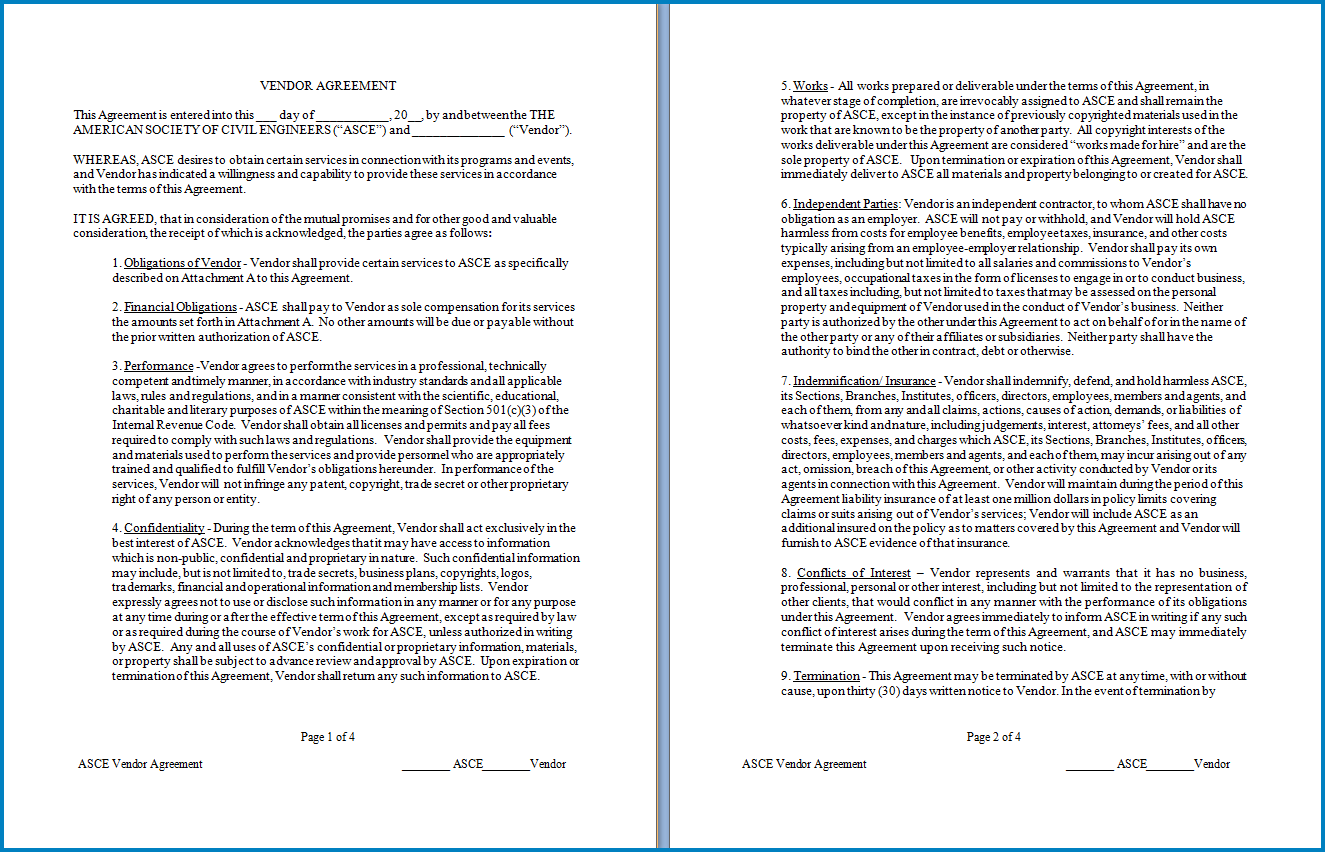
Why are Vendor Agreements Important?
Vendor agreements are essential for businesses as they provide a clear framework for the relationship between a seller and a buyer. Here are a few reasons why vendor agreements are important:
1. Legal Protection: A well-drafted vendor agreement can protect both parties from any potential disputes or legal issues that may arise during the business relationship.
2. Clarity and Expectations: A vendor agreement ensures that both parties have a clear understanding of their roles, responsibilities, and expectations. It helps prevent any misunderstandings or miscommunications.
3. Quality Assurance: By specifying the quality standards and requirements in the agreement, businesses can ensure that the vendor delivers products or services that meet their expectations.
4. Confidentiality and Intellectual Property Protection: Vendor agreements often include clauses related to confidentiality and intellectual property rights, protecting sensitive information and proprietary assets.
5. Dispute Resolution: In the event of a dispute, a vendor agreement provides a mechanism for resolving conflicts, which can help save time and money.
How to Create a Vendor Agreement?
Creating a vendor agreement requires careful consideration of various factors. Here’s a step-by-step guide to help you create an effective vendor agreement:
1. Define the Parties Involved
Begin by clearly identifying the parties involved in the agreement. Include their legal names, addresses, and contact information.
2. Specify the Scope of Work
Define the scope of work or the products and services to be provided by the vendor. Be specific about the quantity, quality, and any other requirements.
3. Establish Payment Terms
Outline the payment terms, including pricing, payment schedule, and any applicable taxes or fees. Specify the preferred payment methods and any penalties for late payments.
4. Set Delivery and Performance Expectations
Specify the delivery timelines, performance expectations, and any quality control measures. Include provisions for inspections, testing, and acceptance of the products or services.
5. Include Confidentiality and Intellectual Property Clauses
To protect sensitive information and intellectual property, include clauses related to confidentiality, non-disclosure, and ownership of intellectual property rights.
6. Address Termination and Renewal
Include provisions for termination and renewal of the agreement. Specify the notice period required for termination and any conditions for renewal.
7. Include Dispute Resolution Mechanisms
To handle potential disputes, include a clause specifying the preferred method of dispute resolution, such as mediation or arbitration.
8. Seek Legal Review
It is always advisable to seek legal review before finalizing the vendor agreement. An attorney can ensure that the agreement complies with relevant laws and protects your interests.
Example of a Vendor Agreement
Here are some examples of vendor agreements that you can use as a reference when creating your own:
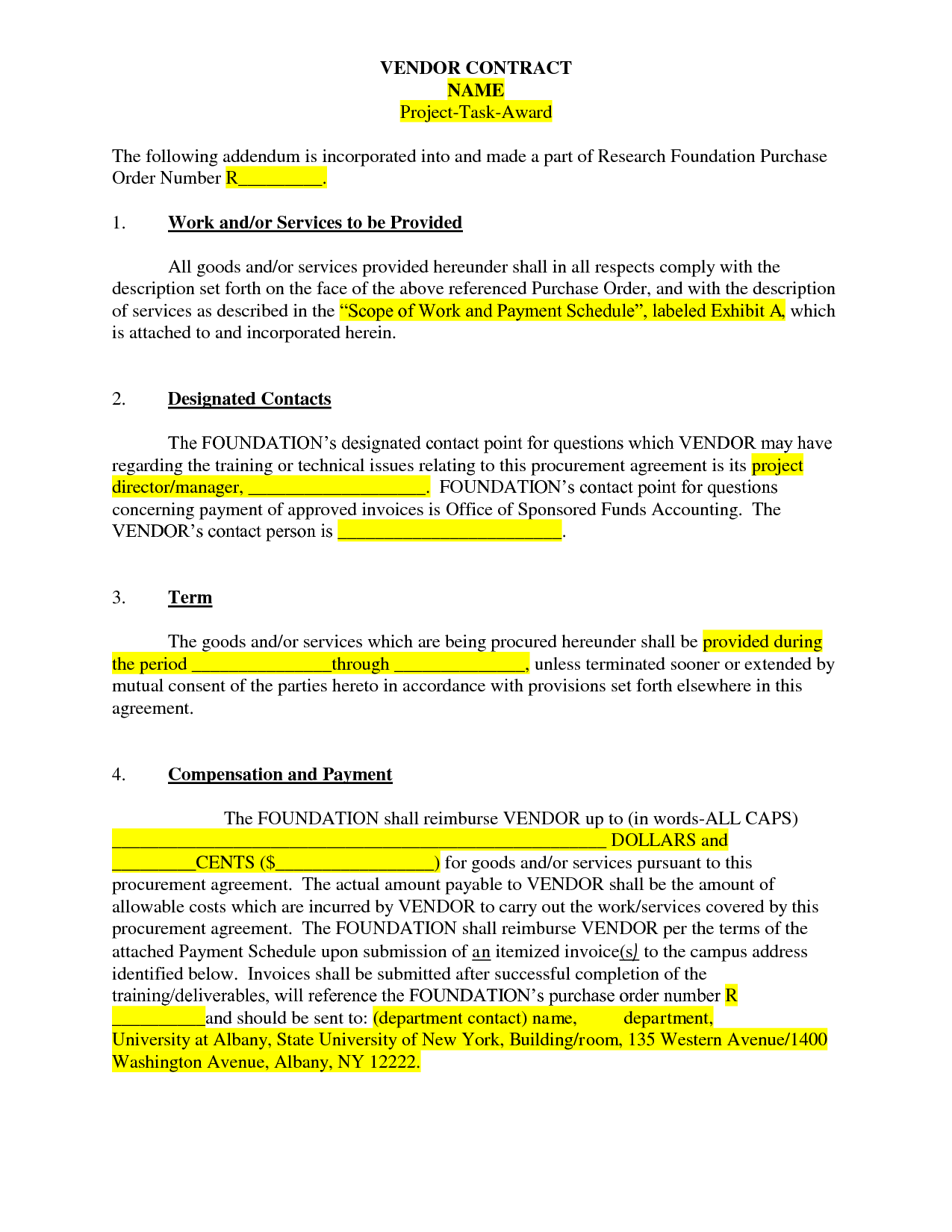
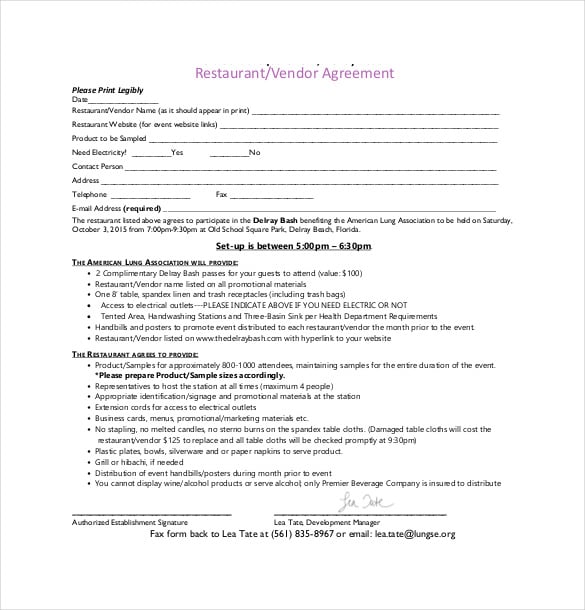
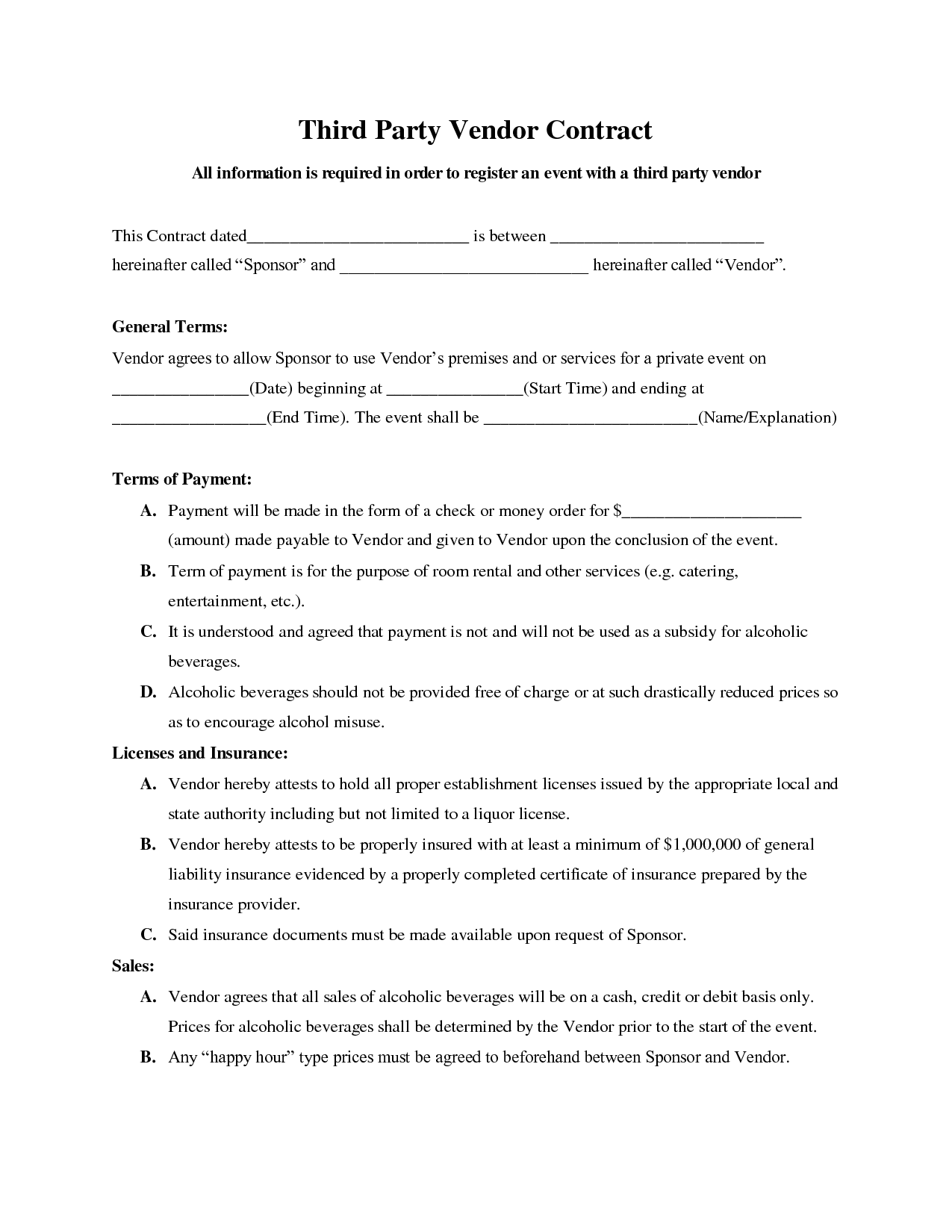
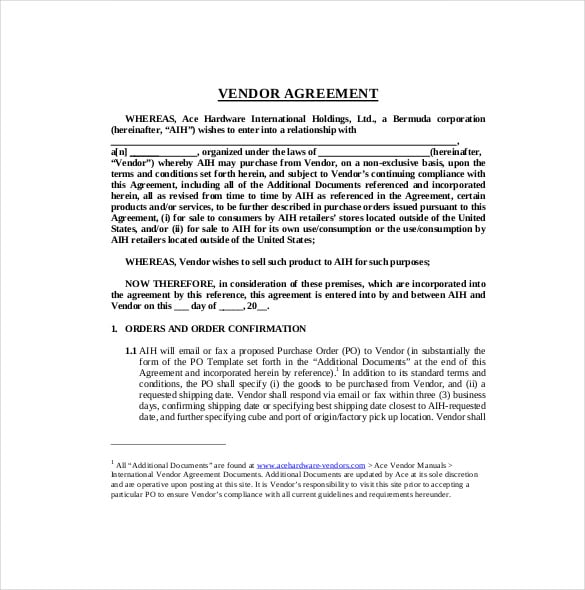
Tips for Successful Vendor Agreements
To ensure the success of your vendor agreements, consider the following tips:
- Clearly Define Expectations: Clearly define the expectations, deliverables, and performance standards to avoid any ambiguity.
- Include Key Provisions: Include provisions for payment terms, termination, intellectual property rights, and dispute resolution.
- Review and Revise Regularly: Review and revise your vendor agreements periodically to ensure they remain up-to-date and reflect any changes in your business needs or industry regulations.
- Communicate Effectively: Maintain open and transparent communication with your vendors to address any issues or concerns promptly.
- Seek Legal Advice: When in doubt, seek legal advice to ensure your vendor agreements comply with relevant laws and protect your interests.
Free Vendor Agreement Template!
Establish clear and professional partnerships with our Vendor Agreement Template. This customizable document outlines essential terms, responsibilities, and expectations for both parties, ensuring transparency and legal compliance. Perfect for businesses managing vendor relationships, it protects your interests while fostering collaboration.
Simplify the process of creating agreements and build a strong foundation for successful partnerships with this reliable and easy-to-use template tailored to meet your business needs.
Vendor Agreement Template – Download